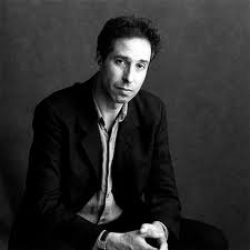James Lasdun, author of It’s Beginning to Hurt and current UNESCO City of Literature visiting professor at UEA, is interviewed by MA student Sophia Veltfort about process, taboos and the choices a writer must make…
Sophia Veltfort: We’ve been talking in prose fiction workshop about what fiction should do. What do you think it should do? Should it do something different from non-fiction or poetry?
James Lasdun: I always feel wary when anyone starts being prescriptive about art, so I’m not sure ‘should’ is a word that belongs around fiction at all. I think what every good novel shows us is that fiction can do a limitless number of things. Personally I like to be shown something about life that I haven’t seen before – not in the documentary sense, but in the sense of some way of looking at the world that deepens or enlarges my own. I suppose I look for that in poetry and non-fiction too, but there’s something about using that sequence of scenes or events that we call a ‘story’ that seems uniquely well-suited to the way we organize our own experience, and therefore uniquely capable of expanding our sense of reality.
SV: You’ve mentioned your ‘private taboo’ against stories that ‘owe their existence to an act of will rather than an irresistible internal necessity,’ and you’ve discussed the sometimes decades-long process of turning real experiences into fiction. From what germ do your stories or poems begin?
JL: I think you have to have a powerful emotional stake in whatever you’re writing about, whatever the form. I’m interested in all kinds of things, but I’ve come to realise that interest alone doesn’t enable me to write about them in a way that satisfies me. It’s complicated: I hate the feeling of forcing a story forward, but on the other hand I hardly ever find it easy to write anything. So I tend to wait until the urge to tell the story is just that little bit stronger than the reluctance to make the effort. That usually happens when two or three different ideas, memories, images, drift together and spark each other in some unexpected way that excites me.
SV: When reading Kafka’s story of the lamb-kitten in your master class, we discussed the series of choices a writer must make as the story progresses. How do you decide which paths to take to bring you where you want to go? How much do you know where you’re going, until you get there?
JL: I think that’s a large part of how you find out who you are as a writer. For me it’s a constant process of monitoring my own responses. Is this me? Is this where I really want the piece to go? Am I just trying to sound like some other writer I admire? Or trying to second-guess some imaginary reader? Every juncture in a story presents you with a range of options. Some of them will always seem grabbier than others – funnier, scarier, whatever – but they’re only ever going to work if they keep you intimately connected with the piece. If you choose them just because you think some reader or critic somewhere is going to approve, you’ll relinquish that connection and almost certainly produce something more or less generic.
SV: You’ve presented reading as not so much an escape from, but rather way into, reality. Could you say more about this?
JL: Well it can be either, of course. It’s just that the feeling I get when I read a book I really like, is one of being repositioned in reality, reconnected to it. That’s what art is about, for me.
SV: What’s your writing process? Do you follow a schedule?
JL: If I’m working on fiction I try to write every day, for as much of the day as possible. I find it very hard to get anywhere with a long narrative if I go at it in fits and starts. I tend to get sceptical about the project if I leave it for too long. With poetry I only ever write when the impulse comes, and I stop as soon as it goes.
SV: You’ve mentioned the “falsifications of consciousness” that can arise in life. How does one go about avoiding falsifications of consciousness when writing?
JL: For me the only way is to write for myself and not think about other people. Of course I hope other people will be interested, but that’s not the same as trying to calculate the best way to please them.
SV: In your writing, what are you trying to do better?
JL: In general, everything. Specifically, to be more open, or open to more things – subjects, methods, human types.


